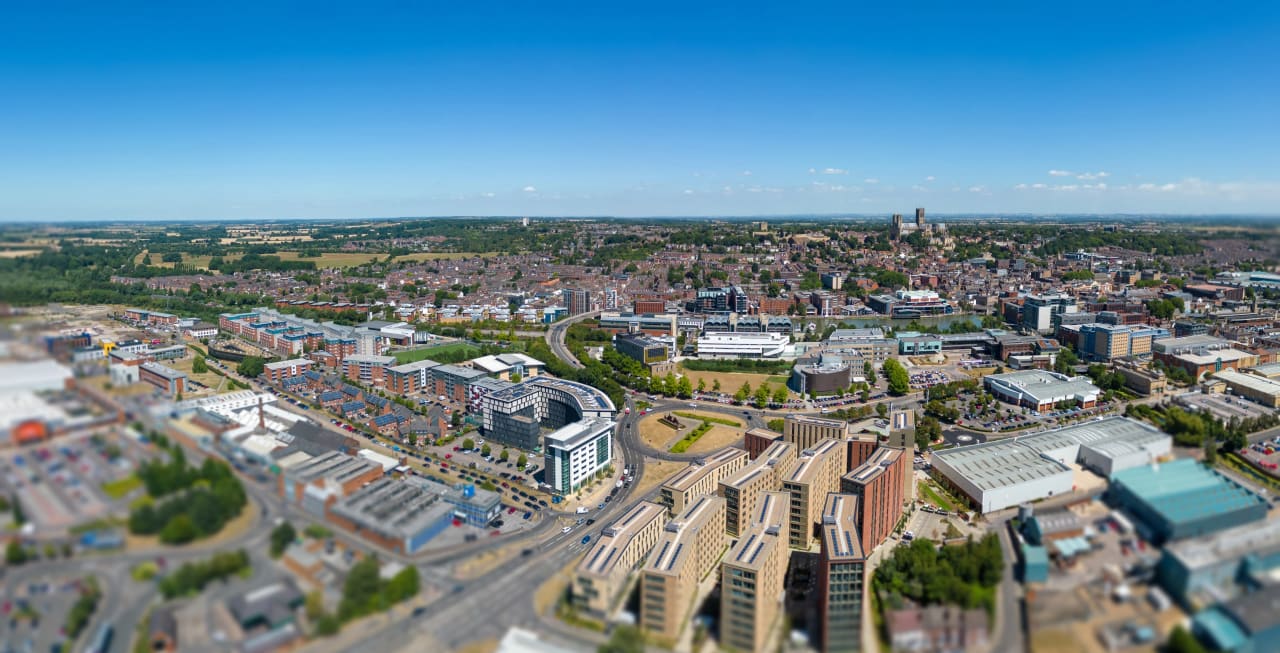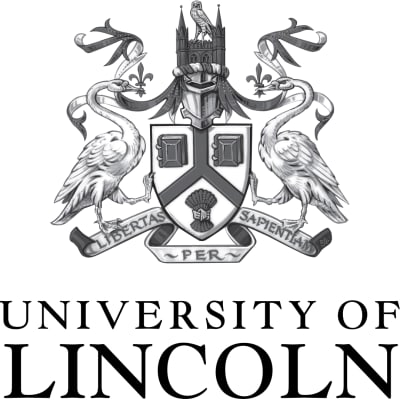
BSc (Hons) Biomedical Science
University of Lincoln

Key Information
Campus location
Lincoln, United Kingdom
Languages
English
Study format
On-Campus
Duration
3 - 4 years
Pace
Full time
Tuition fees
Request info
Application deadline
Request info
Earliest start date
Request info
Introduction
Biomedical scientists play a key role in improving human health. By exploring life processes in humans they lay the foundations for understanding and investigating health, disease, treatment, and prevention.
Biomedical Science at Lincoln offers a broad scientific base, taking a multi-disciplinary approach that incorporates lectures, seminars, and laboratory-based work. The course emphasises the development of transferable skills in information retrieval, data analysis, problem-solving, and critical thinking, as well as hands-on experience.
This degree is accredited by the Institute of Biomedical Science (IBMS). Completion of a Biomedical Science degree accredited by the IBMS, together with successful completion of a portfolio of competencies after gaining six to 12 months of experience in an NHS laboratory and gaining HCPC registration are all essential steps to becoming a qualified biomedical scientist.
Our teaching team includes specialist staff from local and regional hospitals, research scientists, and pharmaceutical industry experts. Their areas of speciality currently cover diabetes, inflammation, cancer, and neurodegenerative and cardiovascular disease.
Students on this programme are able to undertake an optional overseas field trip in their third year. Those who choose to participate must cover the cost of their own flights, but accommodation and meals at the field site are covered by the University. Previously, students have visited the Andean Cloud Forest in Ecuador, the Atacama Desert in Chile, the Mankwe Wildlife Reserve in South Africa, and Peniche in Portugal.
"This information was correct at the time of publishing (July 2023)"
Admissions
Curriculum
How You Study
The first year introduces the fundamentals of biomedical science, including human anatomy and physiology, genetics, and disease. It enables students to begin to develop some of the skills that are vital for a practising scientist.
Students can take their knowledge further in the second year, studying pharmacology, immunology, and molecular biology, while receiving an introduction to biomedical diagnosis and its application in the study and treatment of disease.
In their final year, students can explore topics such as cancer, transfusion, and disease pathology. They are also required to complete an individual research project.
This course is delivered through lectures, practical classes, workshops, seminars, and tutorials. The course will also include inter-professional education and problem-based learning using case studies.
First Year
- Health and Disease (Core)
- Human Anatomy and Physiology (Core)
- Introduction to Life Sciences (Core)
- Medical Biochemistry (Core)
- Research Methods for the Life Sciences (Core)
Second Year
- Clinical Biochemistry and Diagnostics (Core)
- Data Skills for the Life Sciences (Core)
- Fundamentals of Pharmacology & Toxicology (Core)
- Human Ageing and Disease (Core)
- Immunology (Core)
- Medical Microbiology (Core)
- Molecular Biology (Core)
- SLS Study Abroad (Option)†
Third Year
- 21st Century Medicine (Core)
- Blood Sciences (Core)
- Cancer Epidemiology and Pathology (Core)
- Life Sciences Research Project (Core)
- One Health (Core)
- Genetics & Bioethics (Option)†
- Introduction to Forensic Anthropology (Option)†
- Overseas Field Course (Option)†
- Veterinary Parasitology (Option)†
† Some courses may offer optional modules. The availability of optional modules may vary from year to year and will be subject to minimum student numbers being achieved. This means that the availability of specific optional modules cannot be guaranteed. Optional module selection may also be affected by staff availability.
How You Are Assessed
Students in this course may be assessed through written assignments, unseen examinations, practical assessments, presentations, online assessments, reports, and dissertations. Typically the course is 50% coursework and 50% exam, but some modules are coursework only. The University of Lincoln's policy is to ensure that staff return assessments to students promptly.
Gallery
Program Outcome
How You Study
The first year introduces the fundamentals of biomedical science, including human anatomy and physiology, genetics, and disease. It enables students to begin to develop some of the skills that are vital for a practising scientist.
Students can take their knowledge further in the second year, studying pharmacology, immunology, and molecular biology, while receiving an introduction to biomedical diagnosis and its application in the study and treatment of disease.
In their final year, students can explore topics such as cancer, transfusion, and disease pathology. They are also required to complete an individual research project.
This course is delivered through lectures, practical classes, workshops, seminars, and tutorials. The course will also include inter-professional education and problem-based learning using case studies.
Scholarships and Funding
For eligible undergraduate students going to university for the first time, scholarships and bursaries are available to help cover costs. The University of Lincoln offers a variety of merit-based and subject-specific bursaries and scholarships.
Several scholarship options are available. Please check the university website for more information.
Career Opportunities
This degree is accredited by the Institute of Biomedical Science. It aims to prepare graduates to work as qualified biomedical scientists on successful completion of a portfolio of competencies after gaining six to 12 months’ experience in a laboratory. Graduates also go on to a wide range of other careers across medicine, the pharmaceutical industry, research laboratories, universities, public health, and the NHS.
Discover Lincoln Wherever You Are in the World
Our webinars, subject masterclasses, question and answer sessions, and student panel talks are a great way to discover what it is like to live and study at the University of Lincoln.